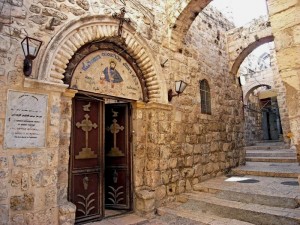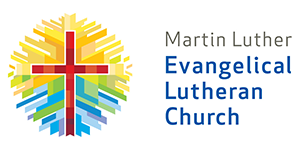Bible Studies about Gospel of Mark continue until summer
Last updated on February 17th, 2018
 We meet usually every second Tuesday at 1:30 pm for the German group and at 7:30 pm for the English group. Next meetings: May 5th, May 26th (instead of the 19th), June 2, and June 16th (last one before summer break)
We meet usually every second Tuesday at 1:30 pm for the German group and at 7:30 pm for the English group. Next meetings: May 5th, May 26th (instead of the 19th), June 2, and June 16th (last one before summer break)
On Feb 3rd 2015 Pastor Christian Ceconi started a new series of bible studies.
Please bring your own bible if possible. You will get a study plan for all meetings until summer during your first session. We will discuss texts from the Gospel of Mark which are mentioned in the lectionary for the upcoming months. Please also read the short introduction on Mark below and in the Jan – Feb 2015 Congregational Newsletter or below.
Contact: Christian Ceconi, (416) 567-2487, pastor@martinluther.ca
Theological Background: The Gospel according to Mark – the beginning of all gospels It began in Jerusalem In the middle of the old city of Jerusalem, near the guest house of the German Lutheran church is located the old Syrian Orthodox St. Mark’s Monastery. Not long after you walk through the door and start talking to the people, you will hear: “This is the childhood home of the evan-gelist John Mark (second gospel). The first Christians gathered together in this home.” Even though this view is not shared by all historians, the place is filled with the history of the early church in Jerusalem, to which the author of the gospel probably belonged. He learned and heard the stories about Jesus from the first eye-witnesses and apostles. Since the 2nd century he was identified with John Mark in the circle of Paul, who is mentioned in various places (Philemon 24; 2 Tim 4:11; Acts 12,12.25; 15,37.39). Whether this connection is accurate remains uncertain. The gospel was probably written around 70 AD.
Mark – the first gospel Mark begins his gospel with the phrase: “The beginning of the gospel of Jesus Christ, the Son of God“ (Mark 1:1). The Greek word euangelion (gospel) describes as much “good news“. This is exactly what Mark intends to write. With his account he wants to awaken faith and joy, as he brings the good news of Je-sus Christ to the people. So it is much more than a biography or a report. Mark creates a new kind of narrative, and starts a new literary for-mat, the gospel. But not only is the new important to him. He connects his Gospel with the Old Testament, with the prophets of old. The first phrase is followed by quotes from Malachi and Isaiah: “See, I am sending my messenger ahead of you, who will prepare your way; the voice of one crying out in the wilderness. Prepare the way of the Lord, make his paths straight.” (Malachi 3:1; Isaiah 40:3).
Beginning of a new era As he tells of John the Baptist at the river Jor-dan, he establishes a connection to the escape of the Israelites into the Promised Land, the beginning of a new era. Similarly Jesus rings in a new era for Mark with his arrival in the world. Mark sees himself as an ambassador of this new era marked by Jesus. He wants to tell the peo-ple: “Jesus Christ, who lived as a man among men, was the son of God, in which the kingdom of God came into the world. He is the crucified and risen. We are invited to follow him.” (H. Brantzen, Who am I for you?, Freiburg 2006). The Year B in our lectionary, which has begun with the first Sunday of Advent, is dedicated to the gospel of Mark. More information will follow in next month’s newsletter.

